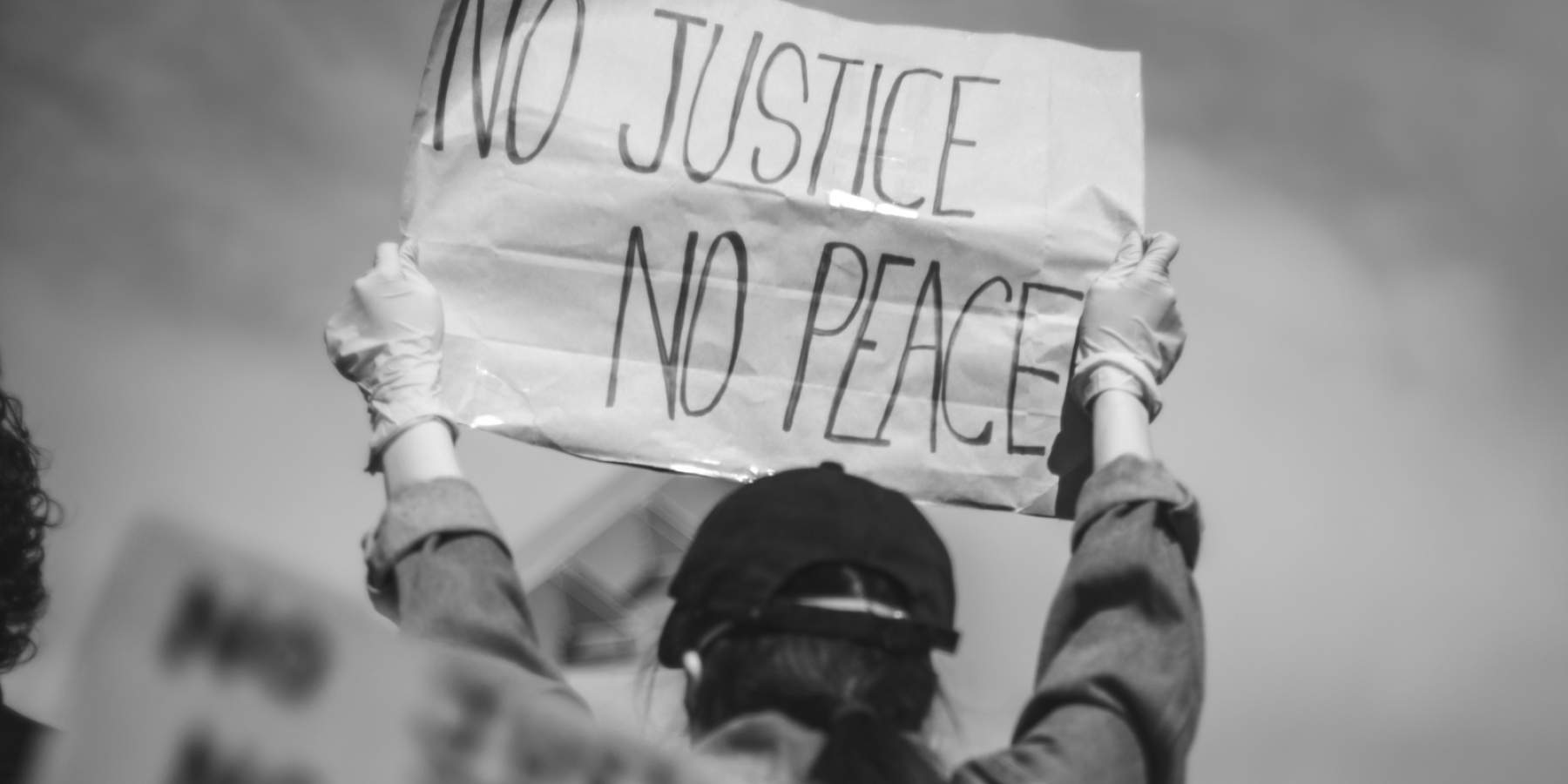When hope and history rhyme
The civil society fight for global justice
“History says, Don’t hope
On this side of the grave,
But then, once in a lifetime
The longed-for tidal wave
Of justice can rise up
And hope and history rhyme.”
Seamus Heaney
The Coalition for the ICC led the civil society effort that successfully campaigned for the adoption of the Rome Statute in 1998, which resulted in the establishment of the ICC four years later.
During those early years, we ensured that states negotiated:
- A strong treaty with provisions for a Court independent from the United Nations;
- Independent judges and an independent prosecutor;
- No immunity for presidents, generals or other government officials;
- Strong defense and fair trial rights;
- Victims to be able to participate in courtroom proceedings and receive reparations.
- Convinced over 120 states to accept ICC jurisdiction in an unprecedented timeframe, and worked with over 70 governments to adopt national laws to prosecute ICC crimes;
- Helped the Court develop as an institution, providing expert advice on its policies, rules and strategies to increase its effectiveness and impact;
- Increased support and cooperation of governments and international organizations with the Court;
- Raised awareness of the ICC system the world over, worked with the media to raise the standard of reporting on the ICC;
- Firmly put accountability on the international agenda by mainstraming justice in capitals around the world and at the United Nations;
- Increased the capacity of global civil society to follow ICC proceedings and undertake their own advocacy;
- Monitored the Court’s trials to ensure their fairness, effectiveness and independence;
- Fought of political attacks on the Court intended to kill the Rome Statute;
- Increased victim’s ability to access justice;
- Advocated for governments to give the ICC the budget it needs to fight impunity wherever the need arises;
We’ve even been nominated for the Nobel Peace Prize three times.
Our story
Against all the odds
1995
An opening for justice
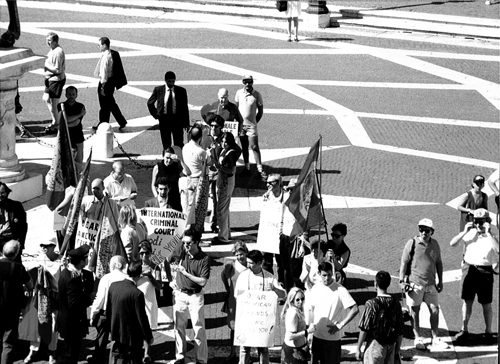
In response to grave violations of human rights in impunity-fueled conflicts in Yugoslavia and Rwanda in the 1990s, a group of 25 civil society organizations from around the world found the Coalition for the International Criminal Court.
They begin advocating for a permanent international criminal court to prosecute anyone, anywhere for war crimes, crimes against humanity and genocide. By 1997, the Coalition grows to 450 organizations and the movement to end impunity builds momentum.
Founding members include Amnesty International, Asociación Pro Derechos Humanos, International Federation for Human Rights, Human Rights First, Human Rights Watch, No Peace Without Justice, Parliamentarians for Global Action, and Women's Initiatives for Gender Justice.
The World Federalist Movement is chosen as the host organization, with its director William R. Pace appointed as Coalition Convenor.
The Coalition has an informal membership policy and non-hierarchical organizational structure, with experts from different organizations leading teams of NGOs on key issues including amendments, communications and outreach, cooperation, gender justice, and legal representation.
The Coalition encourages governments to call for a diplomatic conference to negotiate the ICC treaty. In consultation with the group of "like-minded" governments.
1996-2002 - The Coalition helps develops the guiding principles for a permanent ICC
The Coalition assists with drafting of ICC statute and rules. From 1996 to 1998, six sessions of the Preparatory Committee on the Establishment of the ICC were held at the United Nations headquarters in New York to prepare a consolidated draft ICC statute. NGOs provided input into the discussions and attended meetings under the umbrella of the Coalition.
1998
The impossible happens in Rome
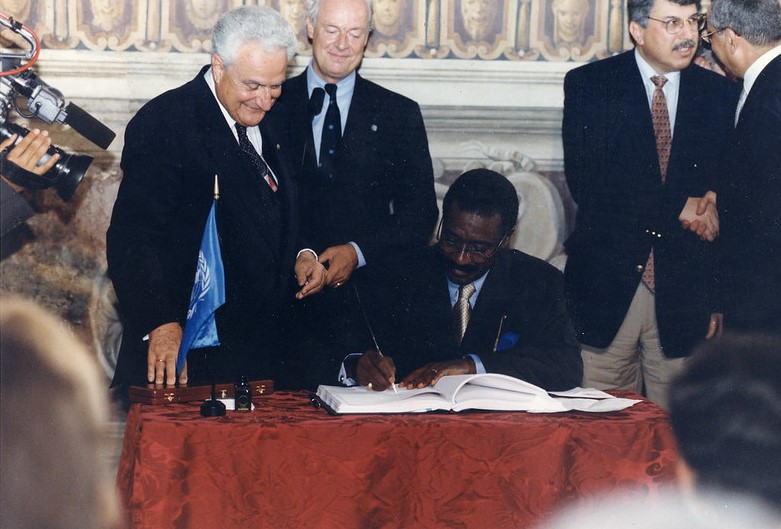
Over a sweltering week in July 1998, global civil society gathers in Rome having successfully urged governments to hold a diplomatic conference to establish an international criminal court. With almost 500 participants, the Coalition brings the largest delegation. Activists play a vital role in information-sharing, legal analysis and advocating for the strongest possible treaty and Court.
To worldwide acclaim, the historic Rome Statute is adopted by an overwhelming majority of 120 countries. The Coalition is credited with ensuring the Court and its prosecutor are independent, strong victims' rights and the inclusion of gender crimes. This is a Court they said would never happen.
During the Rome Diplomatic Conference on the ICC, 15-18 July, the Coalition closely monitors the negotiations, producing daily information for worldwide distribution and facilitating the participation and parallel activities of the more than 200 NGOs which attend.
The Coalition coordinates the input of civil society organization through Issue Teams, that closely follow discussion on particular provisions of the draft statute.
Civil society is credited with some of the most important aspects of the Statute, such as its strong provisions for victim participation, reparations, gender crimes and the independence of the prosecutor. The Steering Committee of the Coalition adopts its eleven principles for the Coalition's work at the Rome Conference.
There are several provisions in the Rome Statute of the ICC that many believe owe their existence to the significant efforts and advocacy of civil society. Some of these include:
- Independence of the prosecutor;
- Automatic jurisdiction;
- Explicit references to gender sensitivity in international law;
- The inclusion of war crimes committed within situations of internal armed conflict (law of non-international armed conflict); and
- Rights and protection of victims and witnesses.
The Court is independent of the UN and its Security Council, with an independent prosecutor and independent judges, and no immunity for heads of state or high officials.
The Court is oppposed by the world's major powers.
Every state in the Assembly of States Parties has one vote, with decisions made by 2/3 majority.
After the Rome Conference, from 1998-2002, NGOs worked in teams at each session of the Preparatory Commission to follow the negotiations on each issue and provide their expert input.
1999
Universal membership is the goal

After Senegal becomes the first state to ratify the ICC treaty in February 1999, the Coalition launches a campaign from The Hague in May 1999 calling for worldwide ratification of the ICC Rome Statute.
The Coalition is nominated for the Nobel Peace Prize. Three other nominations follow in subsequent years.
The Coalition advocates for universal ratification of the Rome Statute of the ICC as it is a cornerstone objective to making the membership in the ICC truly global and universal. The Coalition believes that in order for the Court to succeed, an increasing majority of the world’s nations must support the Court.
In particular, the Coalition has a Universal Ratification Campaign (URC) which focuses on one country each month, rotating to a different region each time. As part of this major campaign, members in every region are encouraged to redouble efforts in order to ensure universal acceptance of the ICC. Local actions are needed to promote awareness of the International Criminal Court, increase media coverage, urge governments to ratify the Rome Statute, adopt effective implementing legislation, and ratify the Agreement on Privileges and Immunities.
The Coalition also campaigns for implementation of all of the crimes under the Rome Statute into domestic legislation. As the court initiates new investigations, the existence of solid cooperation and implementing legislation has taken on further urgency.
In addition, the Coalition urges States to ratify and implement the Agreement on Privileges and Immunity of the ICC (APIC), designed to provide officials and staff of the ICC with certain privileges and immunities necessary for them to perform their duties in an independent and unconditional manner, and to guarantee that their officials are aware of the actual scope and realities of these privileges and immunities and how to apply them in concrete situations.
2000
Despite expert predictions that it would take decades to realize 60 ratifications, the success of the Coalition’s global ratification campaign indicates that it could be achieved by 2002. The Coalition begins research on “lessons learned” from the ICTY and ICTR.
On 31 December, NGO members in the United States conduct an extensive campaign for President Clinton’s signature of the ICC treaty. On its final day for signature, the United States – along with Iran and Israel – signs the Rome Statute, bringing the total number to 139 signatories (surpassing the CICC campaign goal of 120 signatures, to match the votes in favor of the Rome Statute).
2001
After Andorra's ratification of the ICC treaty marked the halfway point to the 60 ratifications needed for the Rome Statute's entry into force, the Coalition calls for the government of the Netherlands and the Preparatory Commission to dramatically step up efforts to prepare for the ICC, including the establishment of an Advance Team.
2002
The Never Again court arrives
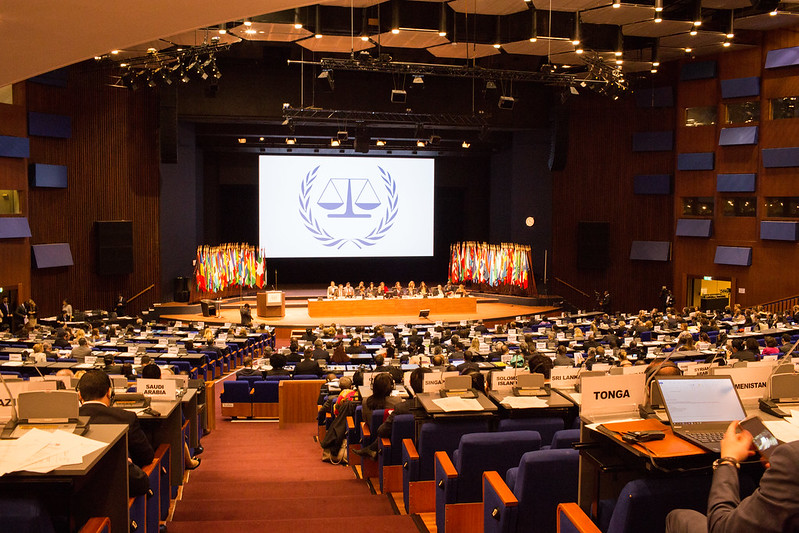
With 60 ratifications in July 2002, the Rome Statute enters into force, decades earlier than predicted thanks to the efforts of global civil society. The ICC sets up its headquarters in a temporary premises in The Hague, the Netherlands.
Now comprising over 1,000 civil society groups, the Coalition endeavours to secure 100 ratifications by 2004.
Coalition members attend a historic ceremony at the UN, in which ten countries simultaneously deposit their instruments of ratification, triggeritng the entry into force of the ICC Statute. The event is the result of close collaboration between the Coalition and the UN. On 1 July 2002, the Coalition hosts a reception to mark the entry into force of the Rome Statute, which is attended by UN Secretary General Kofi Annan.
Shortly after the Rome Statute enters into force, the United States announces to the United Nations its intention not to ratify the Rome Statute. The Coalition organizes intense opposition to US efforts to obtain a Security Council resolution exempting UN peacekeepers from ICC prosecution for a renewable one year period, which is ultimatley adopted on July 12.
2003
In 2003, after the election of the first 18 judges by the Assembly of States Parties in February 2003 in New York, the Coalition participates in the Inauguration of the ICC judges and hosts a Special Convocation with the newly elected judges. The Convenor joins the ICC President and the President of the Assembly of States Parties in a press conference. The next month, the ASP elects Mr. Luis Moreno Ocampo of Argentina as the first Chief Prosecutor of the ICC. He is Sworn in on 16 June 2003 and Coalition members participate in the Swearing in and make presentations at his first public hearing.
2004
Coalition members advocate actively against attempts to undermine the integrity of the Court and help prevent the renewal of Security Council Resolutions 1422/1487 that exempted UN peacekeepers from non-States Parties from ICC prosecution, which is ultimately withdrawn by the United States due to a lack of support.Furthermore, to give more voice to civil society, the Coalition facilitates NGO participation in the Third Session of the Assembly of States Parties, which is held in The Hague for the first time. The Assembly adopts the ICC's budget for 2005 and elects the Deputy Prosecutor for Prosecutions, Ms. Fatou Bensouda of the Gambia.
2003
It's official
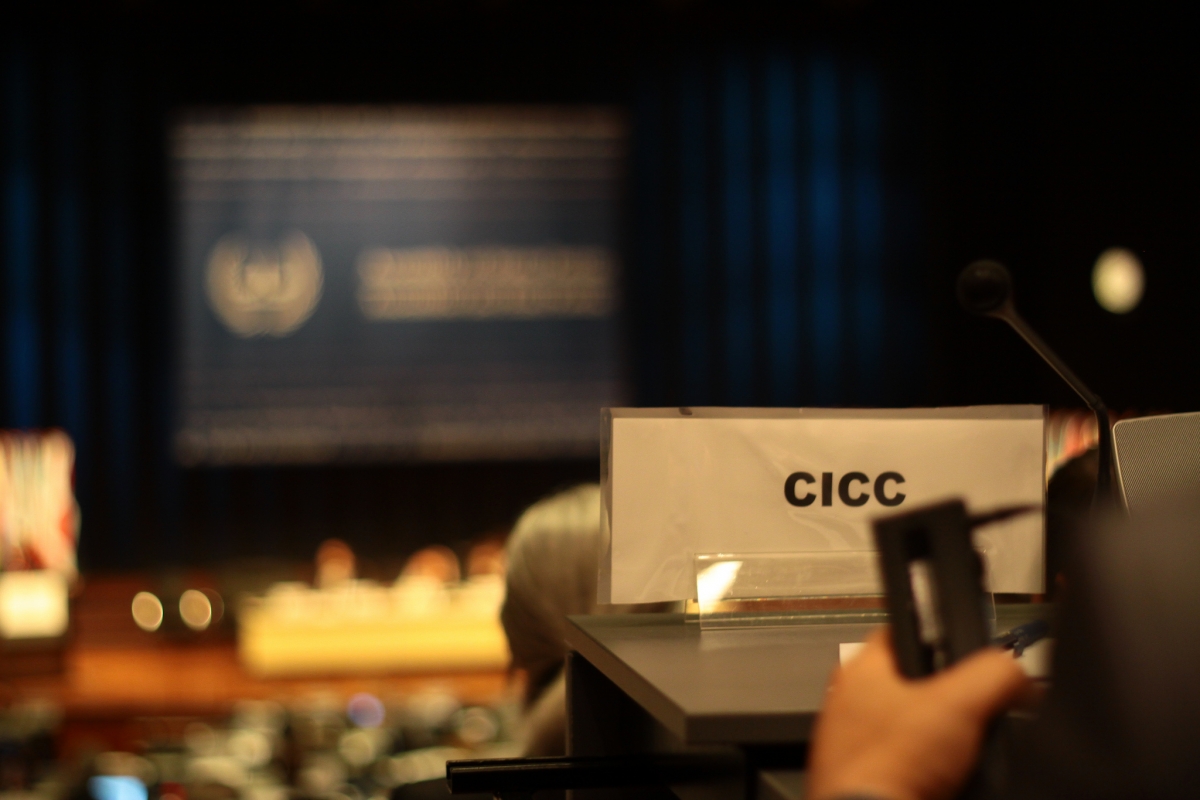
The Coalition's takes on the facilitation of civil society participation at annual sessions of the Assembly of States Parties, the ICC's governing body - coordinating advocacy, sharing information and hosting events. A role officially recognized by the Assembly. We open a co-headquarters in The Hague.
The ASP is the Court's management oversight and legislative body, and is composed of representatives of the States that have ratified or acceded to the Rome Statute. Read more about the ASP.
In May 2002, the Coalition establishes a co-secretariat in The Hague to closely monitor the Court and facilitate NGO consultations with the ICC and the ASP.
The Assembly of States Parties recognized the role of the Coalition when it adopted a resolution entitled Recognition of the coordinating and facilitating role of the NGO Coalition for the International Criminal Court (ICC-ASP/2/Res.8) during its second session in September 2003.
2005
The Coalition turns 10
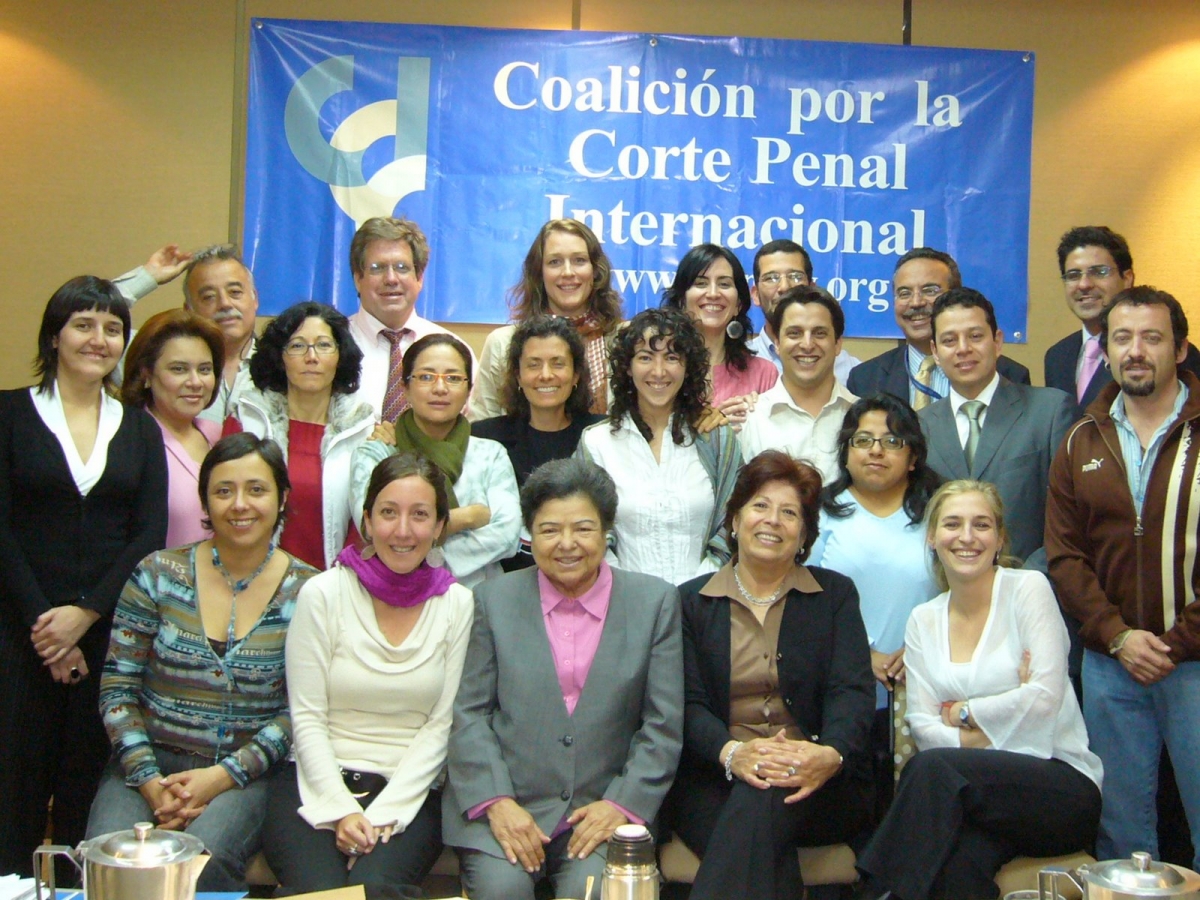
Coalition membership now exceeds 2000 organizations from over 150 countries, with expanded networks in Africa, the Americas and the Middle East. Civil society becomes fully engaged with all aspects of the work of the ICC and ASP.
2006
Hands off, USA
As part of a multi-pronged attack on the ICC, the United States seeks "bilateral immunity agreements" with countries around the world in an effort to shield US citizens from ICC jurisdiction. The US withholds aid from ICC member states who do not comply.
Global civil society fights off the campaign that is contrary to the spirit and letter of the Rome Statute. The agreements eventually fall into disuse. Our first victory against political attacks intended to 'kill' the ICC.
2010
Taking stock
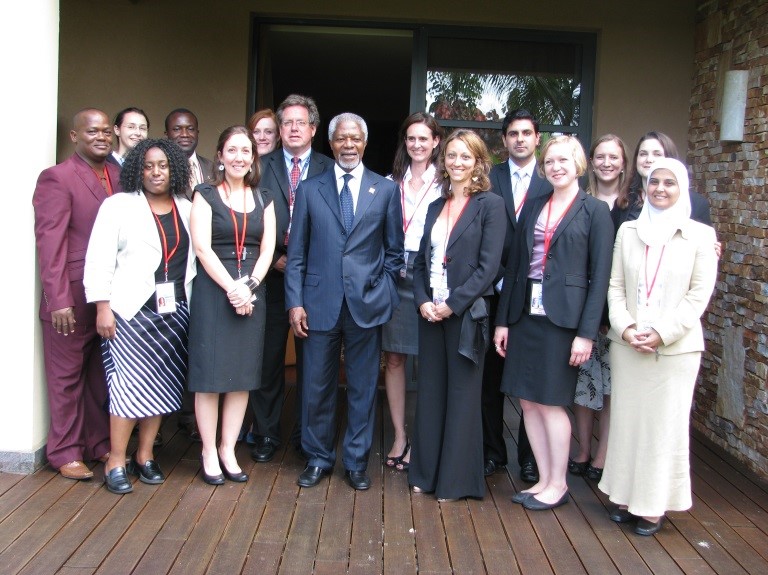
Over 600 Coalition members travel to Kampala, Uganda to take part in the first ICC Review Conference. NGOs play a vital role in discussions around proposed amendments to the Rome Statute and take stock of the international justice system's impact.
Stocktaking
The Review Conference included a stocktaking exercise to consider the holistic success and impact of the Rome Statute to date. Debates focused on the impact of the Rome Statute on victims and affected communities, complementarity, cooperation, and peace and justice, issues truly central to the system's fair, effective, and independent functioning.
Pledges and Kampala Declaration
During the Review Conference, 112 pledges with the purpose of strengthening the Rome Statute system were made by 37 states parties, as well as the United States and the European Union. In addition, the Conference adopted the Kampala Declaration, reaffirming states’ commitment to the Rome Statute and its full implementation, as well as its universality and integrity. The Review Conference further adopted a resolution on strengthening the enforcement of sentences. In parallel, the ICC signed three agreements, with Belgium, Denmark, and Finland, on the enforcement of sentences. The Coalition and its global membership are committed to work to maintain the momentum with States, the UN, other regional bodies and the Court to ensure commitments made in Kampala result in concrete actions.
Amendments: Crime of Aggression
Following long negotiations, States Parties adopted provisions governing the terms of the Court's ability to investigate and prosecute individuals for the crime of aggression. ICC States Parties agreed upon a jurisdictional regime for the crime of aggression, which provides separate procedures depending on whether the situation was referred by the UN Security Council, or whether it came before the Court through a State referral or upon the ICC Prosecutor's initiative. The Review Conference determined that the activation of jurisdiction is still subject to a positive decision by the ASP which cannot be taken before 1 January 2017 and one year after the ratification or acceptance of the amendments by 30 states parties, whichever is later.
Other Amendments
States Parties also agreed not to delete Article 124 - an optional protocol which allows States not to subject their nationals to the Court's prosecutions or investigations over war crimes for a seven year period - but to review it in five years. Second, States accepted to extend the use of certain weapons as war crimes in non-international conflicts.
Pictured here are Coalition Staff meeting with former UN Secretary General Kofi Annan during the Review Conference in Kampala.
2011
Finding the best leaders
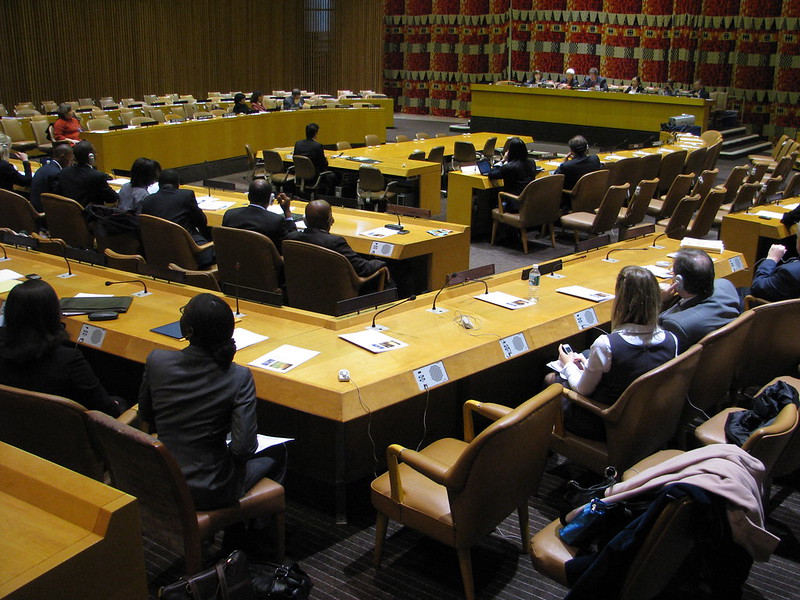
We launch a campaign calling on states to nominate and elect the most qualified candidates to official positions at the ICC - including the judges and the prosecutor - and its governing body, the Assembly of States Parties.
The practice of horse-trading of votes in international institutions reduces their efficiency and effectiveness. Unqualified officials are particularly to be avoided in a judicial body such as the ICC.
Since 2003, the Coalition has promoted informed, merit-based decision-making by governments by ensuring that the qualifications and expertise of candidates for ICC/ASP elections are as transparent as possible. The Coalition does not endorse or oppose individual candidates, but advocates for the integrity of the nomination and election procedures. The Coalition also scrutinizes how states parties nominate a candidate for election, and strongly opposes reciprocal political agreements. The Campaign on ICC/ASP Elections helps to raise awareness and publicize elections and nominated candidates by:
- Requesting all candidates to complete questionnaires that provide additional information about their qualifications;
- Holding interviews with candidates;
- Organizing public seminars with available candidates and experts;
- and Hosting public debates between the candidates.
2012
Justice arrives
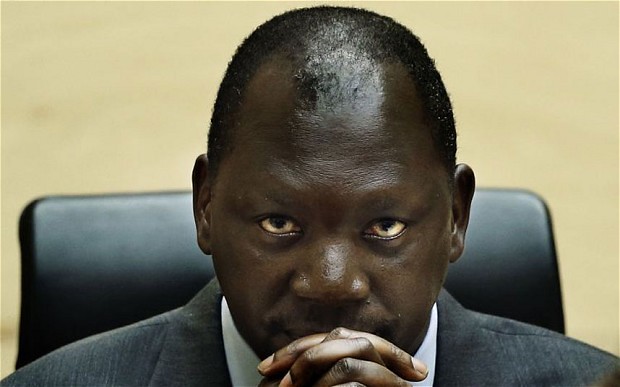
In the historic first ICC trial, Congolese militia leader Thomas Lubanga is found guilty of the war crimes of enlisting and conscripting children under the age of 15 years, and using them to participate actively in hostilities.
Civil society in the Democratic Republic of Congo, and around the world, celebrate the verdict as an milestone in the fight for justice for crimes that shock the conscience of humanity.
Andre Kito, Executive President of the Fondation Congolaise pour la Promotion des Droits humains et la Paix and president of the DRC national coalition for the ICC address communities in the Ituri region on the significance of the decision.
The Coalition and its members hold a press conference to capture this Court milestone, and commemorate the global and regional advocacy that took place that enabled Mr. Lubanga’s arrest and trial
2014
Making international justice work
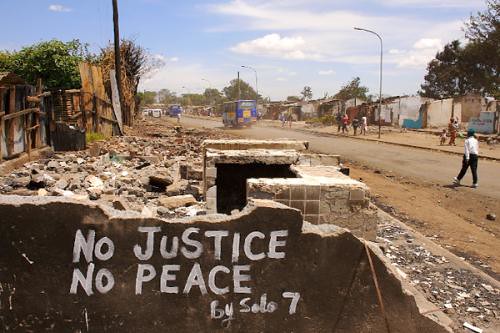
With almost two thirds of the world’s nations now members of the ICC system, the Coalition decided to revamp its long-running Universal Ratification Campaign. While retaining Rome Statute ratification as a central component, the Campaign for Global Justice now includes encouraging national prosecutions of international crimes and greater cooperation with the Court and between states.
This broader focus includes issues such as complementarity and cooperation, ensuring that states are encouraged not only to join the ICC, but also to become fully functioning members of the Rome Statute System by incorporating the Statute into domestic legislation. The expansion allows for a greater variety of context-specific advocacy and actions at the local, national, and regional levels.
2014
Africa: Stay with the ICC
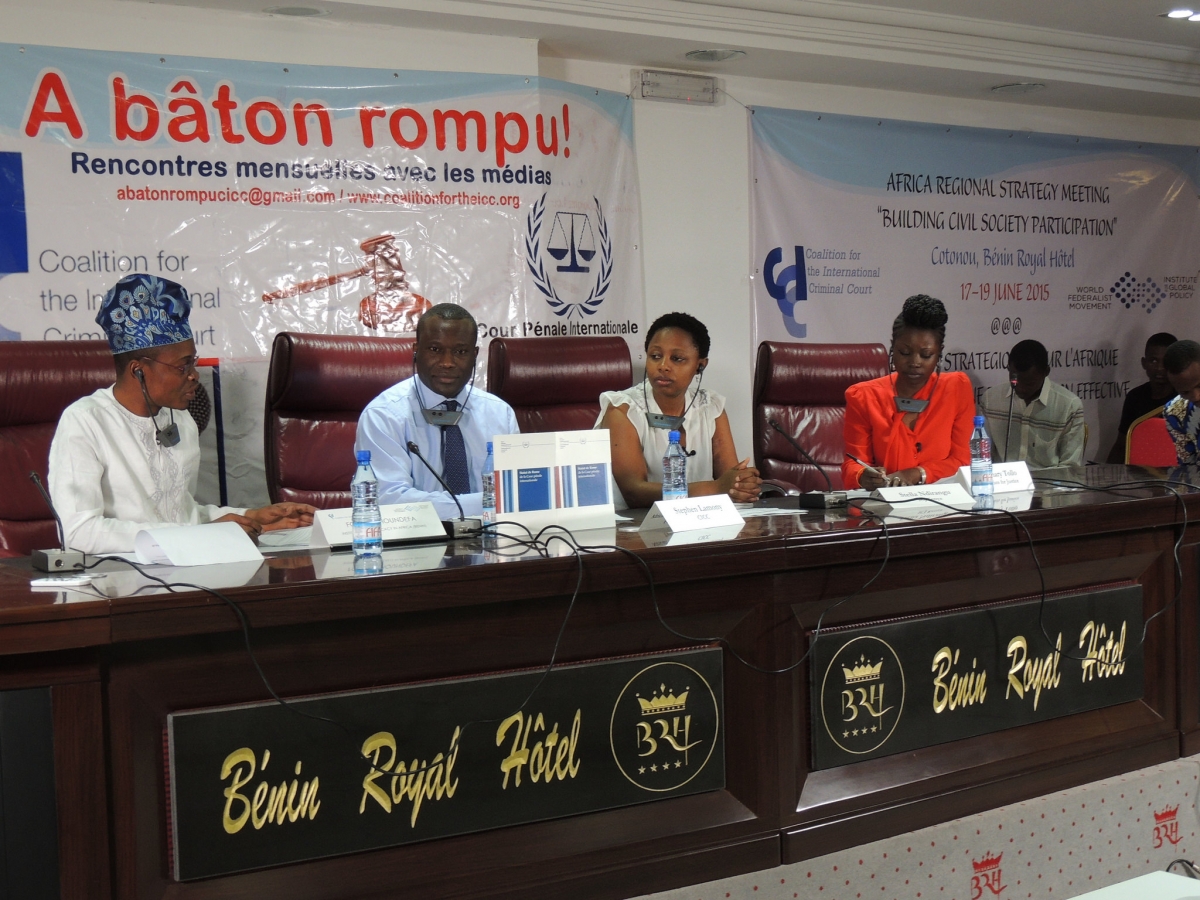
In response to growing misinformation of the ICC in Africa, African and international civil society campaigns for governments to stay with the ICC.
The Coalition's Africa regional office launches a monthly talk show to promote positive dialogue on international justice.
As part of the Coalition’s proactive media outreach, in April 2015, the Coalition’s Africa Regional Office in Cotonou, Benin launched its official talk show, À bâtons rompus. À bâtons rompus is a monthly talk show that discusses ICC issues in the African context, and dispels misinformation about the Court. The show targets African civil society, media, and government officials, and is paving the way for positive dialogue on international justice issues on the continent.
2014
Restrain the veto
Despite the support of over 58 UN member states and 100s of civil society groups, a resolution referring grave crimes in Syria to the ICC for investigation is vetoed by Russia and China in the UN Security Council.
The failure bolsters calls for permanent members of the Council to restrain the use of their veto in situations involving mass atrocities.
The five permanent members of the UN Security Council—China, France, Russia, the United Kingdom, and the United States—have the power to veto any resolution that comes before the Council. Yet all too often, politics trumps attempts to bring impartial justice mechanisms, such as the ICC, into the equation.
2015
Historic advances under threat
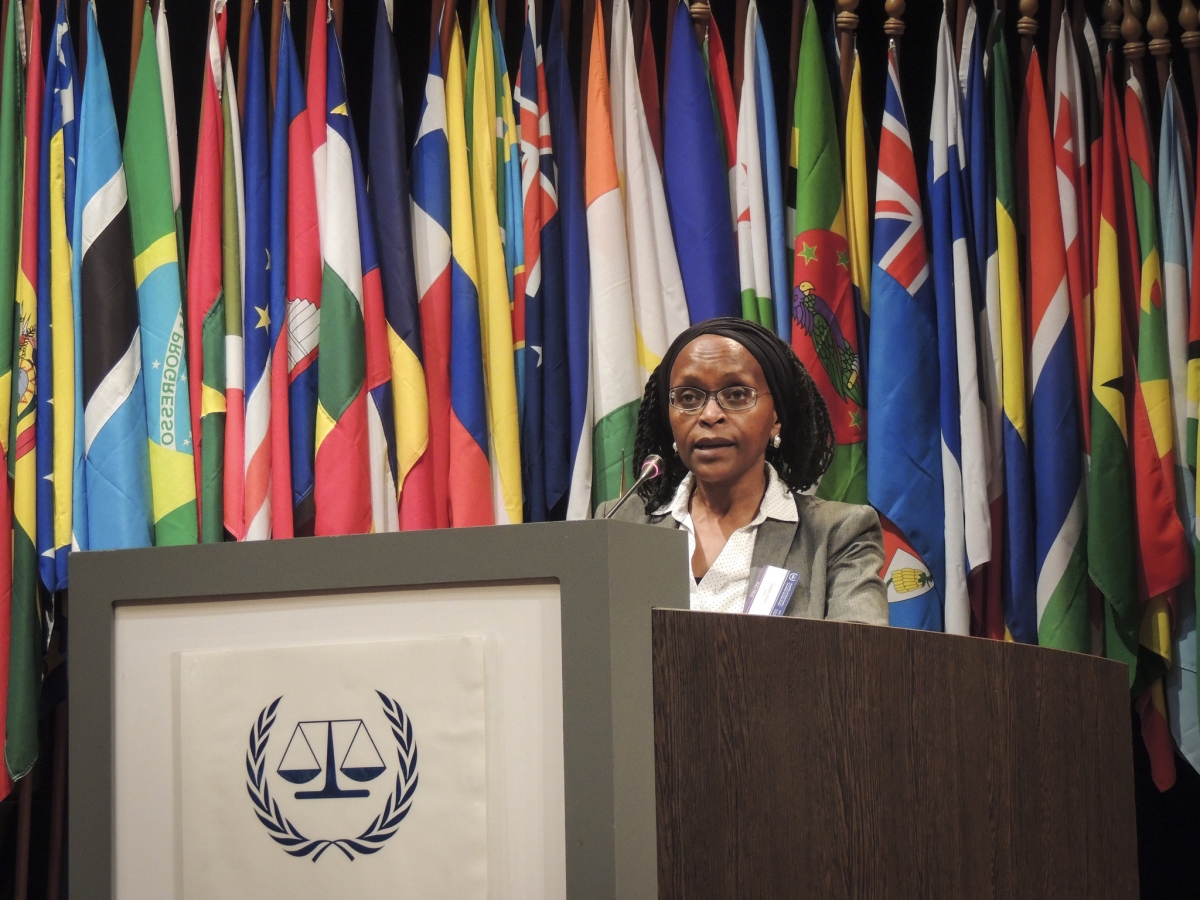
As the ICC begins to have an impact, governments in the Assembly of States Parties threaten to undermine the ICC through financial strangulation and by violating fundamental principles of the Rome Statute through political interference with ongoing prosecutorial and judicial proceedings.
The Coalition calls on states to recapture the "spirit of Rome" in providing greater political, legal, moral suppport for international justice and peace.
2015-2016
Permanent justice
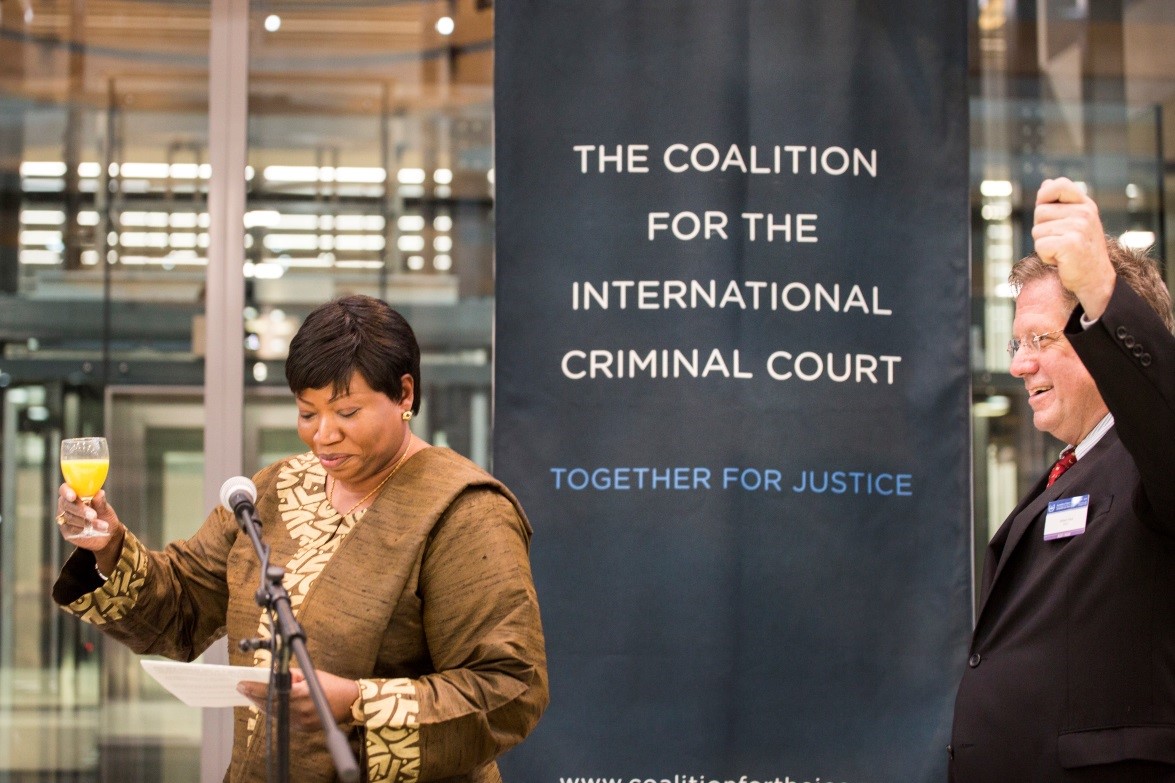
We mark our 20th anniversary at a reception in the new purpose-built ICC premises in The Hague.
The event celebrates the accomplishments of the civil society fight for over 20 years for the establishment of a permanent international criminal court to hold perpetrators of war crimes, crimes against humanity and genocide to account.
Coalition staff, civil society and others reflect on the path travelled and way forward in our 20th anniversary blog series, When hope and history rhyme.
2017
Electing the best to lead the fight against impunity
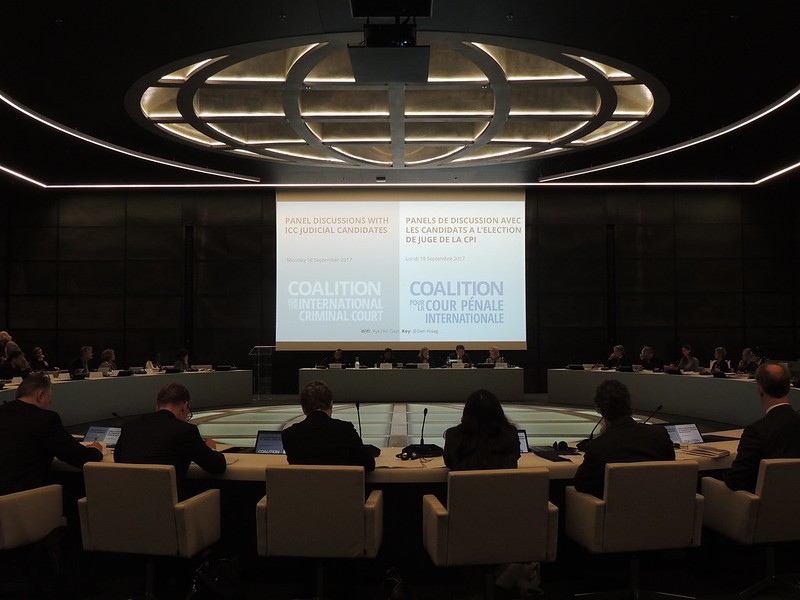
A number of important positions in the Rome Statute system are filled at the 16th session of the Assembly of States Parties (ASP), including six judicial vacancies, the ASP president and two ASP vice-presidents.
Once again, we campaign for states to nominate and elect highly-qualified and independent candidates to key positions in the Rome Statute system through fair, transparent, and merit-based nomination and election processes.
As part of the campaign, the Coalition helps to publicize and raise awareness about ICC and ASP elections and about the candidates. All nominees are requested to complete a dedicated questionnaire that seeks to provide additional information about the candidates’ qualifications.
The Coalition also organizes interviews with all candidates; holds public seminars with available candidates and experts; and hosts public debates between the candidates.
These actions enable nominees to expand on their respective qualifications and expertise, and serve to promote fully-informed decision-making by State Parties delegates when voting. The Coalition strongly opposes reciprocal political agreements (“vote-trading”) in all ICC and ASP elections.
2017
Historic activation of the Crime of Aggression
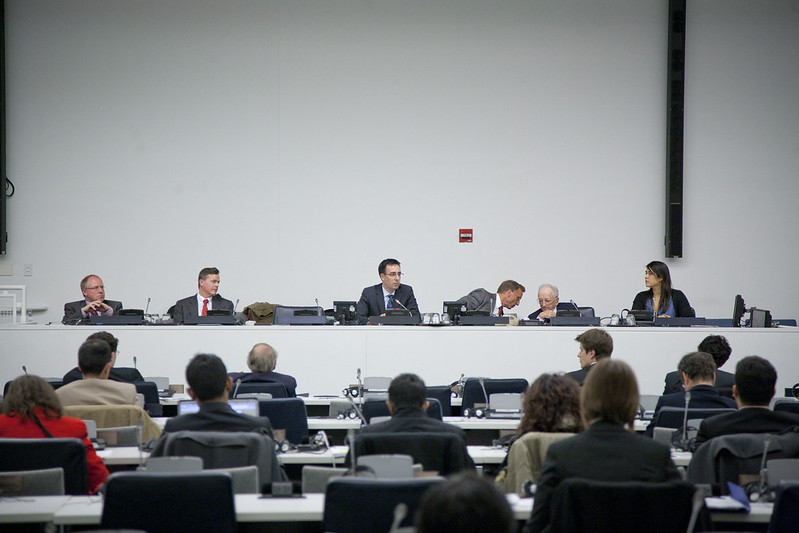
During the 16° ASP in New York, states parties to the Rome Statute agree to activate the ICC's jurisdiction over the Crime of Aggression - its fourth 'core' crime.
Both before and during the Review Conference, the Coalition encourages states to approach the consideration of proposals concerning the crime of aggression on their merits and in a constructive and cooperative manner.
The Coalition Team on the Crime of Aggression is actively involved in the Princeton Process and in the preparatory work undertaken by the Special Working Group on the Crime of Aggression. During the Review Conference, the Coalition is active in providing information and forums for discussion on the topic to its membership and states delegates.
This is our story of hope.
Change can happen in this troubled world of ours.
Let's write the next chapter together.
